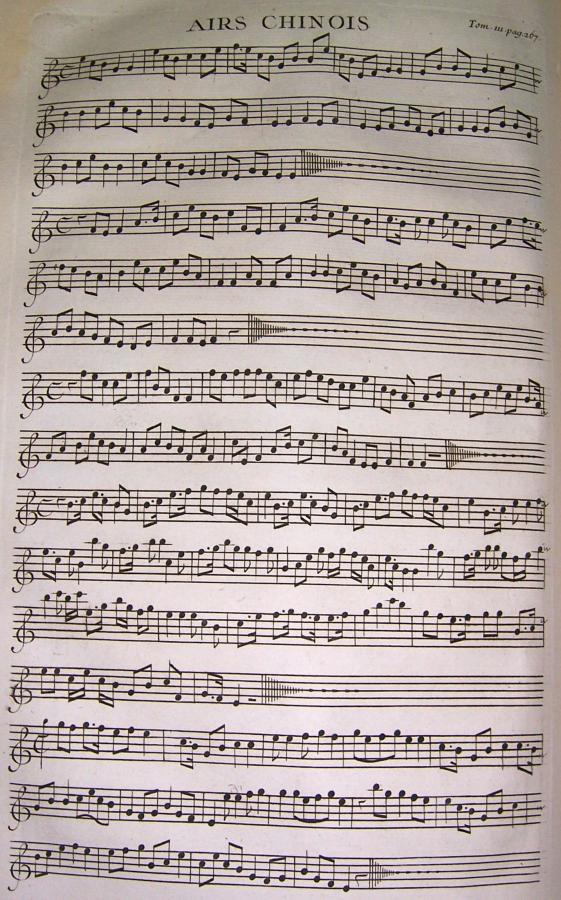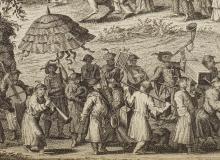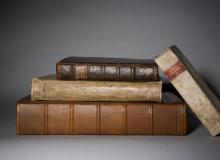Music

Fr. Jean-Baptiste Du Halde, S.J. (1674-1743) was based at the Society of Jesus’ College in Paris who edited the letters sent back to Europe by his Jesuit brethren in China. These were collated into a series called the “Edifying and Curious Letters written by missionaries of the Society of Jesus” (Lettres édifiantes et curieuses écrites par quelques missionnaires de la Compagnie de Jésus). The series had started in 1702 when another Jesuit, Charles Le Gobien, published the first edition, and continued until 1776. Du Halde was responsible for volumes 9 to 26, which he published from the time of Gobien’s death in 1708 until his own death in 1743.
On the basis of this wealth of information Du Halde also put together a type of encyclopaedia about China, which is known in English by its short title: A description of the empire of China and Chinese-Tartary. The first edition of this was published in 1735, with over sixty highly detailed copper-engraved maps. An English translation of this book was published from 1738 onwards.
Du Halde relied on the work (letters and journals and so on) the missionaries in China sent back to him in Paris. He used this information to help publicize the endeavors of the Jesuits but also to educate a European readership about such things as the customs, daily life, flora and fauna of China. His compendium also included a page of music that had been annotated by some of the missionaries. (There were a number of missionaries working as musicians at the imperial court as music was another means by which the foreigners sought to engage with Chinese culture.
The music was called ‘Chinese airs’ and it included a basic number of melody lines written in the treble clef. Traditionally, Chinese music was written down in another system of notation so even at the point of record difference has been incorporated into the transmission of knowledge. It is unknown what other kinds of differences were also included. At any rate, it is known that this is a mid-eighteenth century record of music that a Jesuit missionary wrote down while he was in China, and which he described as being ‘Chinese’. To what extent they are truly authentic is debatable but they are interesting all the same.
Music played by Zhang Muhan (Boston College student, class of 2014)
Related Items

Quando il Fiume Giallo si acchiararà (Frammenti ricciani) (2011)
In keeping with the historic and continuing practice of the Jesuits, an artist was commissioned to help participate in the book exhibition that initiated this project. Ralf Gawlick, composer, responded to the epic story of Ricci.

